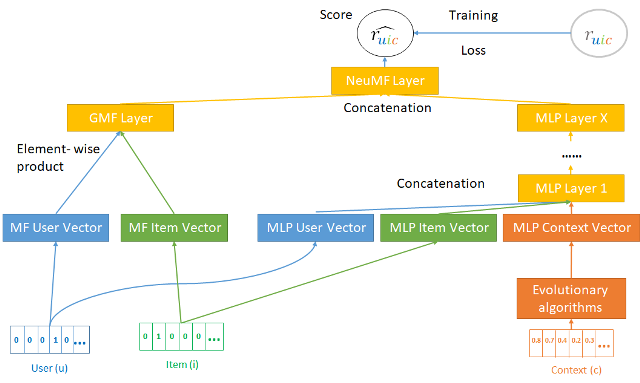Researcher: Dr. Achiya Elyasaf, Collaborator: Mr. Amit Livne
user context to provide personalized services. The contextual information can be driven from sensors in order to improve the accuracy of the recommendations. Yet, generating accurate recommendations is not enough to constitute a useful system from the users' perspective, since certain contextual information may cause different issues, such as draining the user's battery, privacy issues, and more. Additionally, adding high-dimensional contextual information may increase both the dimensionality and sparsity of the model.
Previous studies suggest reducing the amount of contextual information by selecting the most suitable contextual information using domain knowledge. While in most studies the set of contexts is both small enough to handle and sufficient to prevent sparsity, such context sets do not necessarily represent an optimal set of features for the recommendation process. Another solution is compressing it into a denser latent space, thus disrupting the ability to explain the recommendation item to the user, and damaging users' trust.
The main goal of this proposal is to develop new methodologies for creating CARS models, that will allow for controlling user aspects, such as privacy and battery consumption. Specifically, we propose to develop a feature-selection algorithm, based on evolutionary algorithms (EA), for explicitly incorporating contextual information within CARS (see Figure 1). In a preliminary experiment with a small CARS dataset derived from mobile phones, EA produced different subsets of contextual features that demonstrated similar high-accuracy values and interoperability of the provided recommendations. Thus, we were able to manually examine the effect of the selected features on both accuracy and user aspects (i.e., privacy and battery optimization).
We believe that our approach will contribute to the emerging field of explainable dynamic CARS, and yield a novel type of explanations. Moreover, this approach can be later extended to general recommender systems and contribute to the larger community.

Figure 1. The proposed framework. An evolutionary algorithm evolves subsets of the contextual information (features), that are explicitly incorporated within a context-aware recommender system.